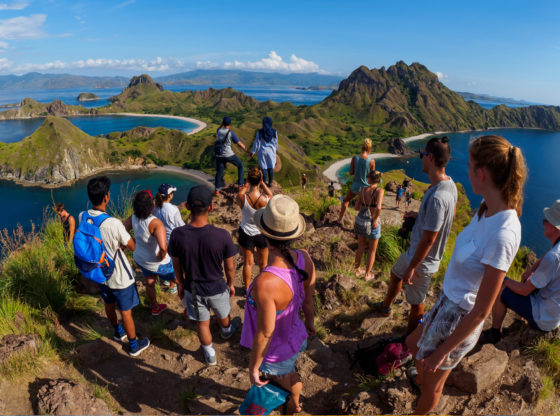In today’s interconnected world, tourism has emerged as a powerful tool for economic development in many countries, especially those in the developing phase. This thriving industry offers a myriad of benefits that go beyond picturesque landscapes and memorable experiences for travelers. In this blog, we’ll explore the multifaceted ways in which tourism helps in developing a country.
1. Boosting Foreign Exchange Earnings:
One of the most significant advantages of tourism is its ability to bolster a country’s foreign exchange earnings. When tourists visit a destination, they spend money on various services such as accommodation, food, transportation, and souvenirs. This influx of foreign currency can be a substantial source of revenue for the host country. These earnings can then be used to finance imports, allowing the country to access goods and services from abroad, further stimulating its economy.
2. Encouraging Investment and Competition:
Tourism acts as a catalyst for investment and encourages local businesses to become more efficient. The influx of tourists creates a competitive environment, prompting local firms to enhance the quality of their products and services. This increased competition often leads to innovation and higher standards, which can have a positive ripple effect throughout the economy. As businesses strive to cater to the needs of tourists, they invest in infrastructure, technology, and employee training, ultimately contributing to the country’s economic development.
3. Alleviating Unemployment:
Tourism is a labor-intensive industry, which means it has the potential to provide jobs on a large scale. From hotel staff and tour guides to restaurant workers and artisans, tourism creates employment opportunities for a diverse range of skill sets. This is particularly beneficial in countries with high unemployment rates, as it helps alleviate this pressing issue. Additionally, the sector often offers flexible employment options, enabling people to earn a livelihood through seasonal or part-time work.
4. Preserving Culture and Heritage:
Tourism can also play a pivotal role in preserving a country’s cultural and historical heritage. To attract tourists, destinations often invest in the restoration and maintenance of historical sites, monuments, and cultural traditions. This not only safeguards the nation’s identity but also educates both locals and visitors about their heritage, fostering a sense of pride and cultural awareness.
5. Infrastructure Development:
The growth of tourism frequently necessitates improvements in infrastructure, including roads, airports, public transportation, and utilities. These upgrades not only enhance the travel experience for tourists but also benefit local residents by improving overall living standards. Better infrastructure can stimulate additional economic activities, such as trade and commerce, which further contribute to development.
6. Diversifying the Economy:
Relying on a single industry can be risky for a country’s economic stability. Tourism helps diversify the economy by creating alternative sources of revenue. This diversification reduces a country’s vulnerability to economic shocks in specific sectors, contributing to long-term stability and growth.
Conclusion
As we’ve delved into the incredible impact of tourism on a country’s development, it’s worth noting that beautiful destinations like Mauritius are shining examples of how this industry can transform nations. If you’re intrigued by the idea of exploring the paradisiacal island of Mauritius and wish to discover more about its captivating attractions, culture, and experiences, head over to MauritiusTourTravels.com.Read more blogs about Mauritius, unearth hidden gems of Mauritius, and plan your dream vacation today. Let the enchantment of Mauritius inspire your next adventure!
